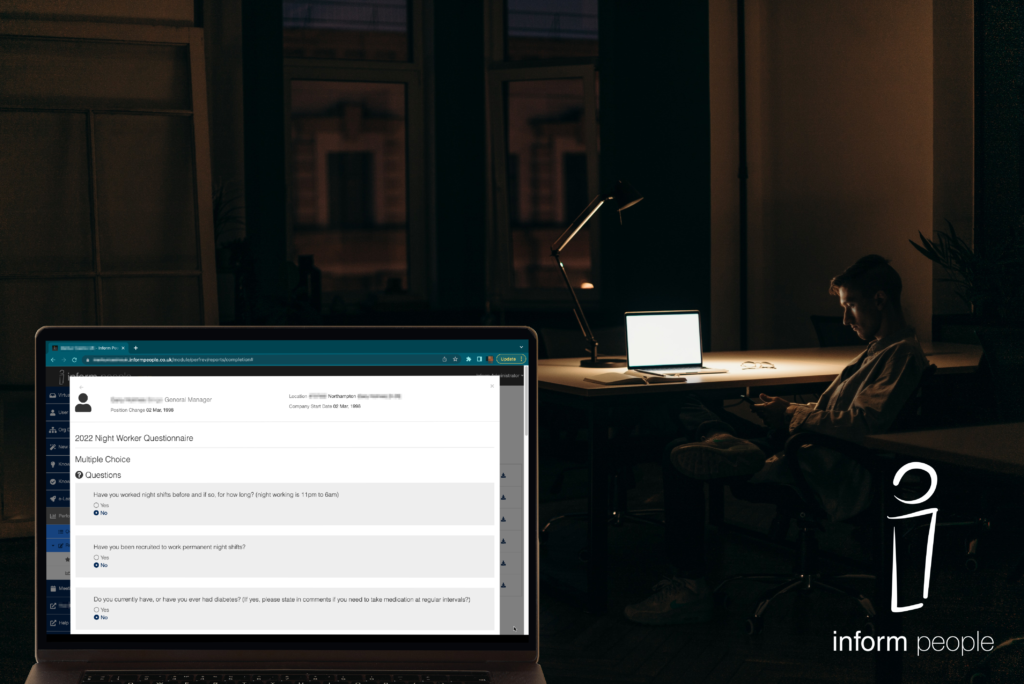Are you one of the industries who run venues where, at least on occasion, there is only one employee on duty in a single location? This is known as lone working and will incur a series of compliance, logistical, and safety considerations that you need to fully understand and prepare for before your employees are left to manage all aspects of lone working.
In this blog we will cover the key stages of preparing for lone working, making sure people know what to expect, monitoring the impact of lone working, and the need to review following feedback and legal changes.
Preparation: What to do before lone working
-
- Identify where lone working could take place
-
- Review the impact and potential risks
-
- Highlight any tasks that can’t or should not be completed while lone working
-
- Prepare easy to follow instructions and ways for people to contact their colleagues
-
- Understand how people will be identified for lone working and how this will be kept up-to-date
Expectations: Training and Information Access
For Individuals
-
-
Training
-
- Before your people start working solo they will need to complete certain training on how to handle any unusual situations and know who to contact if they need anything. This might consist of an in-person training Event that they are invited to as part of their role’s onboarding and/or an online module filled with the relevant policies and procedures.
-
-
-
-
Guides and Updates
-
- During their time working by themselves they will require easy access to any help guides and emergency information they might require while they aren’t able to talk to colleagues on site. This might take the form of a Policy or poster of key information, accessible in their company Knowledge Base or on the back office wall.
-
-
-
-
Communication
-
- This is vital for those who will be spending long hours alone – make sure your colleagues have working technology to stay in touch with the wider team, whether this be a phone, two-way radio or internet connection.
-
-
-
-
Feedback
-
- Provide an easy way for your colleagues to let you know how they are finding their role if it is new or share their insights if they have been lone working for longer – hints and tips could be shared in a Memo to everyone who fulfils this role or a Top-Tips toolbox talk delivered by one of your people.
-
-
For Managers
-
-
Management Additional Training
-
- Managers and Supervisors should receive specific training on managing and supporting lone workers. This includes understanding their responsibilities, effectively communicating with lone workers, and addressing safety concerns.
-
-
For Locations
-
-
Risk Assessments
-
- Complete a location risk assessment and safety audit to make sure it is safe for lone working. Consider any hazards that are especially dangerous if there is only one person present. Make sure you have your Risk Assessment standardised across the whole business so it is easy to run through in each location and regularly. Using an online system like Inform People’s Audits module for this will make it easier for everyone to check previous results too as they are tied to the location rather than the people who completed the check.
-
-
-
-
Key User Contact Information
-
- Make sure that emergency contact information is up-to-date and easy to access – this can range from written information to personal alarm buttons – these should be checked regularly too.
-
-
-
-
First Aid (Kit and Training)
-
- Equipment and training should be readily available to anyone who is working alone – this should be tracked so that it does not expire – so that they can feel safe and confident in their lone working role.
-
-
During Lone Working: Monitoring and Collaborating
-
- Make sure there are agreed interval check-ins via phone, video call or other method to increase confidence and a feeling of safety for anyone involved. Missing one of these check-ins would be a cause for concern and there will need to be a process in place to ensure the correct next steps are taken.
-
- Security cameras/location security – sometimes monitoring safety could be undertaken through technology – if it is this should be checked and audited regularly to maintain compliance at every location.
-
- Incident reporting. Make sure there is the right process in place for reporting any incidents that might occur, both during lone working hours and the rest of the time too. This can be as simple as a well communicated email address to the incident team and follow up audits or checks to make sure changes have been made to combat the cause.
Follow up and Review: Mental and Physical Health Checks.
-
- Stay aware of legal and regulatory compliance – there is government guidance for lone working that could be subject to updates. Make sure you have an awareness and provision to stay in-line with the standards expected and adjust if anything changes. The best employers will be looking for continuous performance improvement and staying aware of industry standards is part of this too.
-
- In a similar way to checking that a location is fit to be occupied by a solo worker, you need to make sure that your people are suited to their lone working role, especially if they will be working at night as is often the case.
-
- Night working and lone working Risk Assessments can often take place as a Review in an ad-hoc format rather than a standard annual review. Inform People’s Compliance and Performance management software provides a Review module where these checks can be assigned based on job role or even an opt-in attribute so only people identified for lone working would need to complete them.
-
- Isolation and the lack of socialisation during lone working can lead to increased stress or anxiety, so as an employer you need to make sure that adequate mental health resources are accessible for your whole workforce; offer support, a simple way to feedback any concerns they have, and training for the teams who are able to respond.
Many jobs in the public sector may require a shift of lone working, where your people need to work without direct supervision and only remote access to assistance from their wider team or Head Office. Health and Safety is a concern in these situations so you and your team need to be prepared. The Health and Safety of lone working requires a comprehensive approach and consideration of all possibilities. Training, auditing, communication and feedback should be simple and easy to access. We think that Inform People could support your lone working colleagues and their wellbeing in their role.
If you’re curious and want to know more about how to support your lone workers and keep them safe, get in touch with us through our contact form, directly to info@informpeople.com or even give us a call on +44 (0)161 713 4104. We will be happy to arrange a visit or an online demonstration so you can see how our system could work for you.




